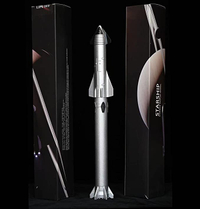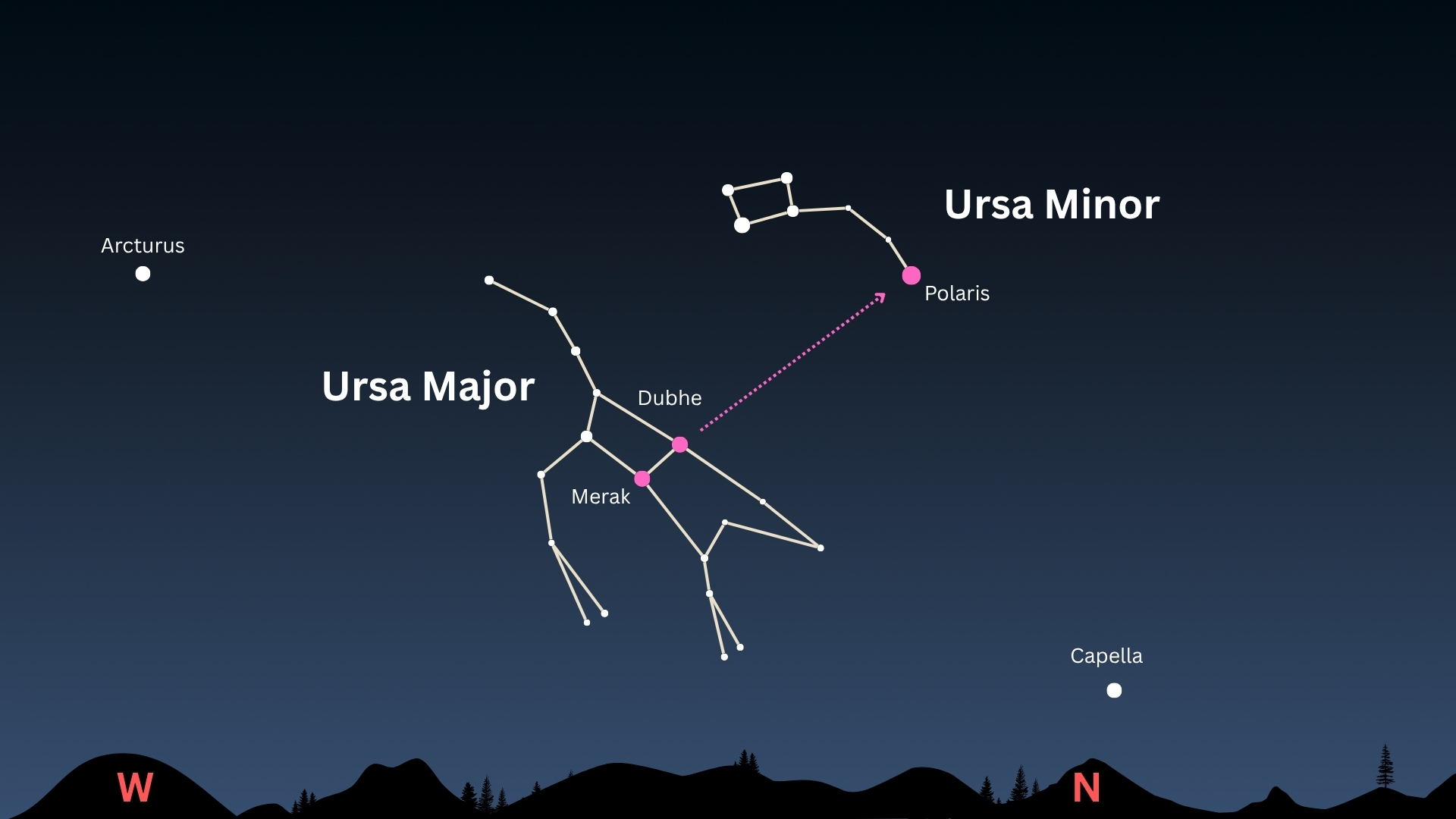What time is SpaceX's Starship Flight 7 launch test today?
SpaceX's seventh Starship test flight will now launch no earlier than Thursday, Jan. 16, at 5 p.m. EST (2200 GMT).
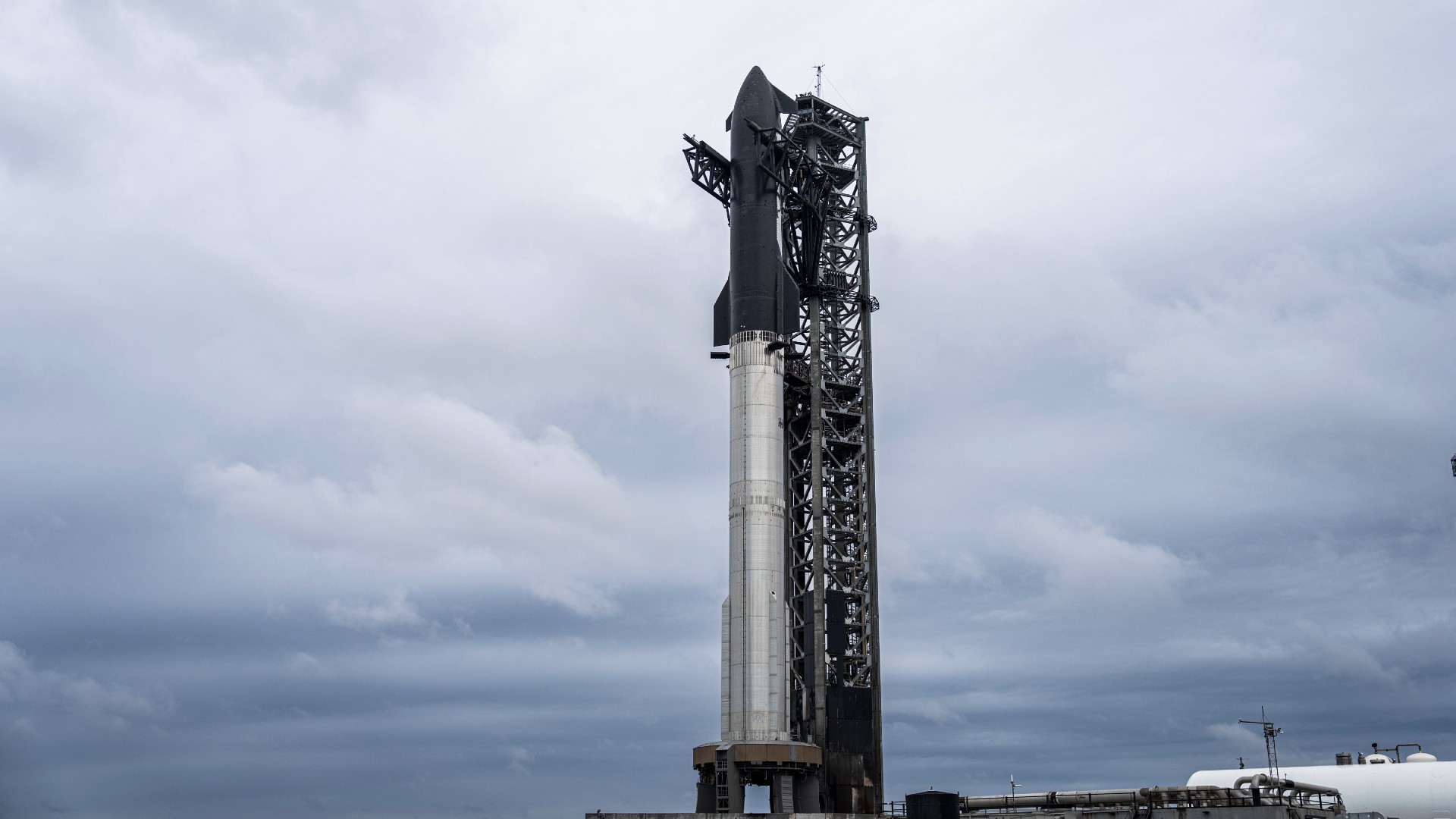
SpaceX is one day away from the launch its first Starship flight of 2025, a mission that will test a new version of the world's largest rocket. But if you're hoping to watch the launch, now set to Jan. 16, live online, you'll need to know when and where, and for that we've got you covered.
SpaceX is scheduled to launch its Starship Flight 7 mission at 5 p.m. EST (2200 GMT) on Thursday, Jan. 16, -- three days later than an earlier Jan. 13 target -- from the company's Starbase facility near Boca Chica Beach in South Texas. The mission will mark the seventh test flight of a SpaceX Starship, but it's the first of a new design for the rocket that includes significant upgrades. If all goes well, the company will attempt to catch the Starship rocket's huge Super Heavy booster at its launch site as it did last fall.
You'll be able to watch the Starship Flight 7 launch live on Space.com, courtesy of SpaceX, in a livestream that will likely begin about 30 minutes before launch time. Follow our Starship live updates for more mission milestones.
What time is SpaceX's Starship Flight 7 launch?
SpaceX is currently targeting 5 p.m. EST (2200 GMT) on Thursday, Jan. 16, for the launch of its Starship Flight 7 test flight, a time that will ensure it will be daytime in the Indian Ocean when the Ship vehicle returns to Earth. It will be 4 p.m. local time at the Starbase launch site at liftoff
On Friday, Jan. 10, SpaceX reported on X that it conducted a successful fueling test of the stacked Starship rocket and Super Heavy booster, which stand nearly 400 feet (122 meters) when fully assembled. The megarocket is the world's tallest and most powerful rocket.
SpaceX was initially targeting a Jan. 13 launch date for Starship Flight 7, but changed that plan late Saturday night (Jan. 11). On Wednesday, with just seven hours to go, SpaceX announced another delay.
"Due to weather, we're now targeting Thursday, January 16 for Starship's seventh flight test," SpaceX wrote on X. The launch time remains the same on the new day.
Breaking space news, the latest updates on rocket launches, skywatching events and more!
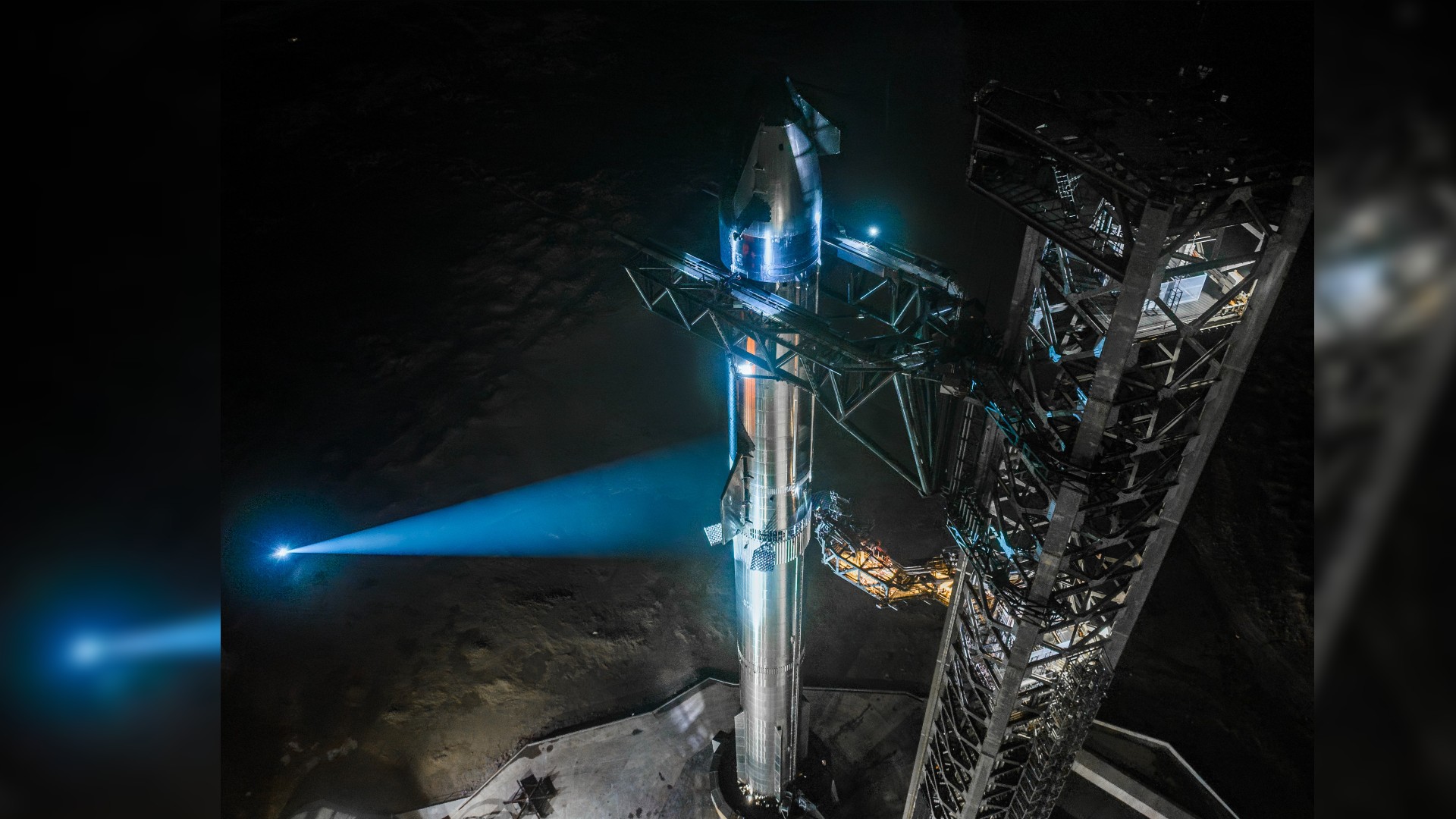
Starship Die Cast Rocket Model Now $47.99 on Amazon.
If you can't see SpaceX's Starship in person, you can score a model of your own. Standing at 13.77 inches (35 cm), this is a 1:375 ratio of SpaceX's Starship as a desktop model. The materials here are alloy steel and it weighs just 225g.
SpaceX's Starship rockets use 33 Raptor engines on the Super Heavy booster to lift off its Mechazilla pad at the Starbase facility. The upper stage is powered by six vacuum Raptor engines.
The first Starship launch lifted off in April 2023 but failed to reach space. It was SpaceX's Flight 3 Starship that reached space for the first time in March 2024. The company launched three more missions in 2024, the highlight of which was the Oct. 14 launch of Starship Flight 5, which marked the first time SpaceX successfully caught the massive Super Heavy rocket with the Mechazilla gantry arms.
Related: Read our SpaceX Starship and Super Heavy guide for a detailed look
Can I watch the SpaceX's Starship Flight 7 launch?
Yes, you will be able to watch SpaceX's Starship Flight 7 test launch online. You can use several different livestreams to track the mission, including one we'll simulcast on Space.com.
SpaceX's official launch webcast will stream live on the company's X social media account , as well as its Flight 7 mission page. The livestream should begin about 30 minutes before liftoff at 4:30p.m. EST (2030 GMT). Space.com's VideoFromSpace YouTube channel will simulcast SpaceX's official webcast, and it will appear on this page and at the top of our homepage.
NASASpaceflight.com is offering its own livestream YouTube. The channel also also offers 24/7 live views of SpaceX's Starship prepartions and Starbase operations.
If you live in South Texas or plan to drive to Starbase, you can try to watch the launch live in person, but you will have to find your own viewing site. SpaceX does not offer an official viewing location for its Starship test flights.
The Starship pad is visible from several public beaches near SpaceX's Starbase site. These include South Padre Island, where you can find clear line-of-sight views of SpaceX's Starship pad from Isla Blanca Park and its Cameron County Amphitheater. The nearby Port Isabel can also be a good viewing area, but be sure to scout potenital sites in advance. Traffic can be heavy driving into both sites, so plan to arrive early. And don't forget to pack snacks, folding chairs, bug spray and other essentials!
How long is SpaceX's Starship Flight 7?
SpaceX's Starship Flight 7 test flight is expected to last about just over 66 minutes, according to a flight plan released by SpaceX.
Per that plan, the Flight 7 Ship vehicle is expected to fly on a trajectory very similar to that of SpaceX's Flight 6 Starship launch in November. In that previous flight, Starship launched on a suborbital trajectory that reentered over the Indian Ocean, west of Australia.
During its hour-long flight, the Ship vehicle is expected to attempt to deploy its 10 simulated Starlink satellites about 17 minutes after liftoff. At the 37-minute mark, the spacecraft is expected to relight one of its six Raptor engines in a relight demonstration similar to one performed on Flight 6.
"While in space, Starship will deploy 10 Starlink simulators, similar in size and weight to next-generation Starlink satellites as the first exercise of a satellite deploy mission," SpaceX wrote in a mission overview. "The Starlink simulators will be on the same suborbital trajectory as Starship, with splashdown targeted in the Indian Ocean."
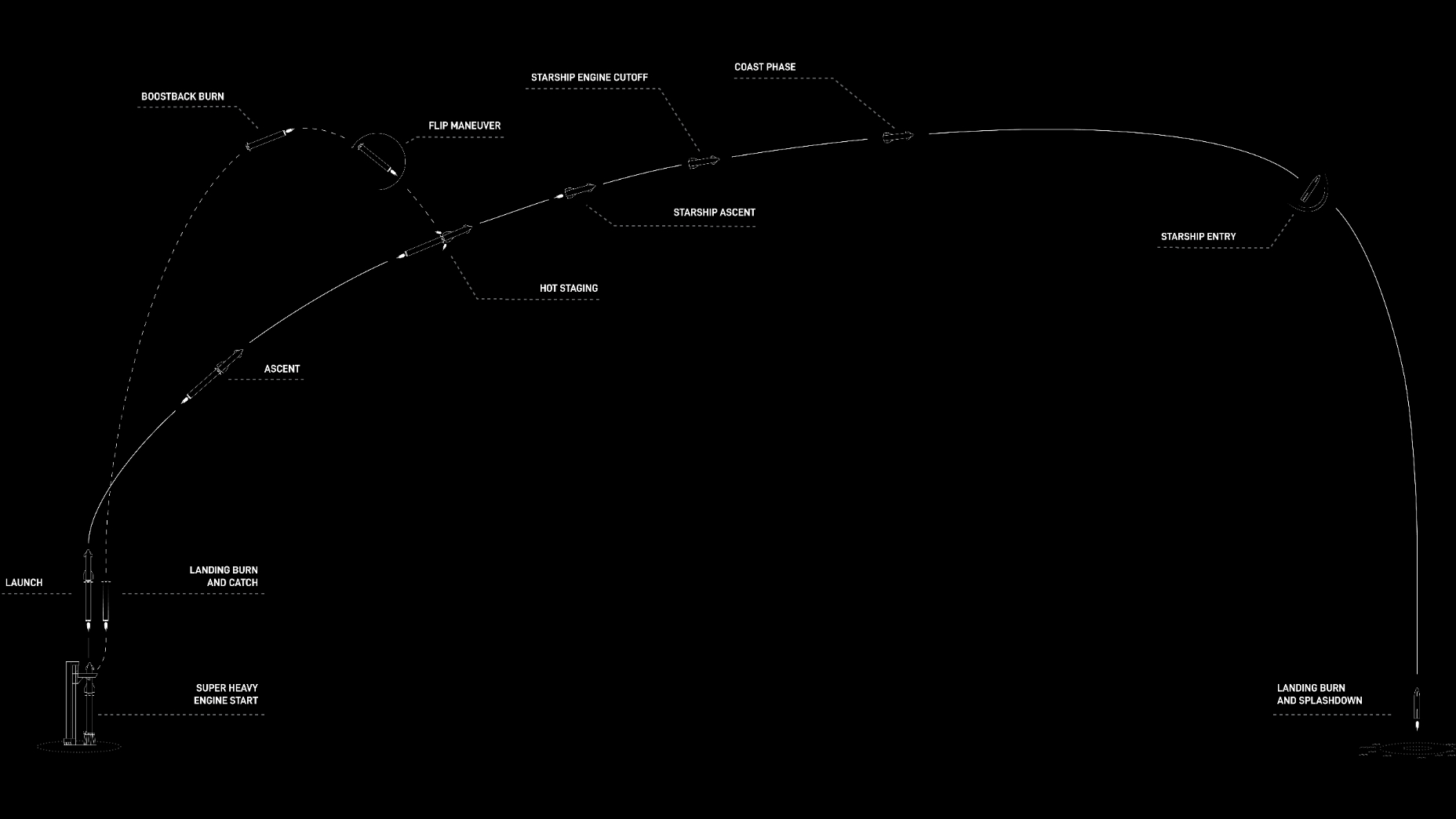
The Super Heavy booster launching Starship will also reenter Earth's atmosphere. SpaceX is hoping to catch the giant rocket stages just like the company did in October during its Starship Flight 5 test flight, when the rocket was captured by giant metal "chopsticks" on what SpaceX calls Mechazilla, its Starship launch pad structure.
"Distinct vehicle and pad criteria must be met prior to a return and catch of the Super Heavy booster, requiring healthy systems on the booster and tower and a final manual command from the mission's Flight Director," SpaceX wrote in its overview.
If those criteria aren't met, SpaceX will forego the rocket catch attempt and Super Heavy will automatically divert itself to a soft-landing attempt in the Gulf of Mexico. That's exactly what happened in November during the Flight 6 test flight. For Flight 7, both the Super Heavy booster and the Mechazilla structure are carrying hardware upgrades to make a catch more likely, "including protections to the sensors on the tower chopsticks that were damaged at launch" during the Flight 6 test flight, SpaceX said.
| TIME (Hr:Min:Sec) | EVENT | Header Cell - Column 2 |
|---|---|---|
| T-1:15:00 | Flight director poll for fuel loading | Row 0 - Cell 2 |
| T-0:44:59 | Starship liquid oxygen loading begins | Row 1 - Cell 2 |
| T-0:42:20 | Starship liquid methane loading begins | Row 2 - Cell 2 |
| T-0:41:24 | Super Heavy liquid methane loading begins | Row 3 - Cell 2 |
| T-0:35:28 | Super Heavy liquid oxygen loading begins | Row 4 - Cell 2 |
| T-00:19:40 | Super Heavy Raptor engine chilldown | Row 5 - Cell 2 |
| T-00:3:20 | Starship fueling complete | Row 6 - Cell 2 |
| T-00:2:50 | Super Heavy fueling complete | Row 7 - Cell 2 |
| T-00:0:30 | Flight Director GO for launch | Row 8 - Cell 2 |
| T-00:00:10 | Flame deflector activation | Row 9 - Cell 2 |
| T-00:00:03 | Raptor ignition sequence startup | Row 10 - Cell 2 |
| T-00:00:00 | Liftoff ("Excitement Guaranteed," SpaceX says) | Row 11 - Cell 2 |
| TIME (Hr:Min:Sec) | FLIGHT EVENT | Header Cell - Column 2 |
|---|---|---|
| T+00:02 | Liftoff | Row 0 - Cell 2 |
| T+01:02 | Starship/Super Heavy reach Max Q | Row 1 - Cell 2 |
| T+02:32 | Super Heavy main engine cutoff | Row 2 - Cell 2 |
| T+02:40 | Hot-staging separation/Starship Raptor engine ignition | Row 3 - Cell 2 |
| T+02:46 | Super Heavy boostback burn startup | Row 4 - Cell 2 |
| T+03:29 | Super Heavy boostback burn engine shutdown | Row 5 - Cell 2 |
| T+03:31 | Hot-stage jettison | Row 6 - Cell 2 |
| T+06:25 | Super Heavy is transonic | Row 7 - Cell 2 |
| T+06:35 | Super Heavy landing burn startup | Row 8 - Cell 2 |
| T+06:55 | Super Heavy landing burn shutdown and catch try | Row 9 - Cell 2 |
| T+08:53 | Starship engine cutoff | Row 10 - Cell 2 |
| T+00:17:33 | Payload deploy demo | Row 11 - Cell 2 |
| T+00:37:33 | Starship engine relight demonstration | Row 12 - Cell 2 |
| T+00:47:14 | Starship reentry | Row 13 - Cell 2 |
| T+01:03:12 | Starship transonic | Row 14 - Cell 2 |
| T+1:04:25 | Starship is subsonic | Row 15 - Cell 2 |
| T+1:06:13 | Landing flip | Row 16 - Cell 2 |
| T+1:06:19 | Landing burn | Row 17 - Cell 2 |
| T+1:06:39 | "An exciting landing!" SpaceX says. | Row 18 - Cell 2 |
What if Starship can't launch on Jan. 16?
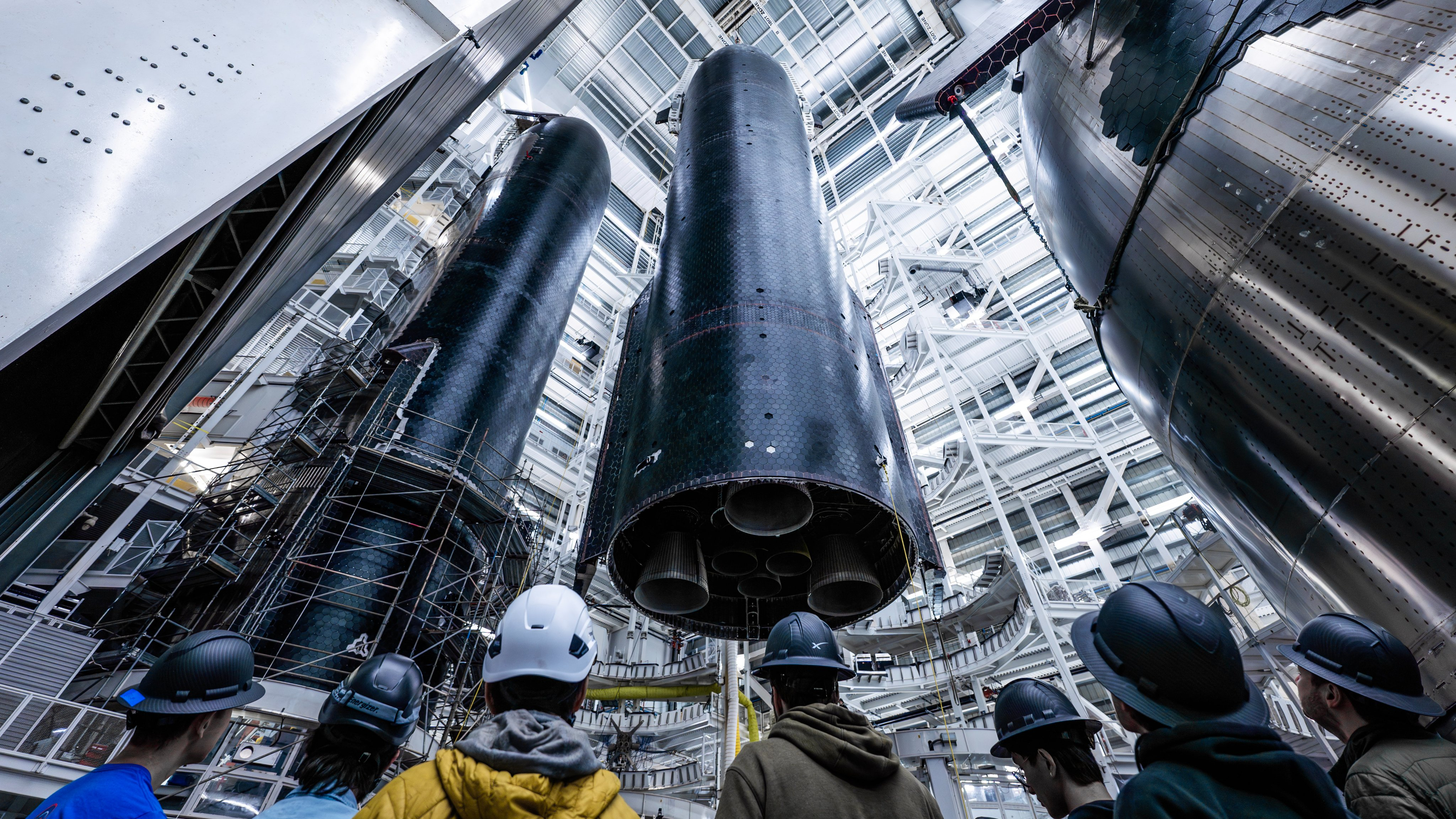
If SpaceX is unable to launch Starship Flight 7 on Jan. 16, it's unknown when the company could potentially try again.
A Notice To Airmen alert from the FAA related to Starship Flight 7 runs from Jan. 9 to Jan. 17, suggesting the company could have at least one more day in its line up for a Flight 7 launch.
However, any backup launch attempt for Starship Flight 7 depends on how far SpaceX goes into fueling process during a launch countdown. In the past, SpaceX officials have said it can take several days to restock the now nearly 11 million pounds of liquid methane and liquid oxygen propellant needed for liftoff.
"As is the case with all developmental testing, the schedule is dynamic and likely to change, so be sure to check in here and stay tuned to our X account for updates," SpaceX wrote in its Flight 7 Starship overview.
Editor's note: This story was updated on Jan. 15 to reflect the latest launch date from SpaceX.
Join our Space Forums to keep talking space on the latest missions, night sky and more! And if you have a news tip, correction or comment, let us know at: community@space.com.

Tariq is the Editor-in-Chief of Space.com and joined the team in 2001, first as an intern and staff writer, and later as an editor. He covers human spaceflight, exploration and space science, as well as skywatching and entertainment. He became Space.com's Managing Editor in 2009 and Editor-in-Chief in 2019. Before joining Space.com, Tariq was a staff reporter for The Los Angeles Times covering education and city beats in La Habra, Fullerton and Huntington Beach. In October 2022, Tariq received the Harry Kolcum Award for excellence in space reporting from the National Space Club Florida Committee. He is also an Eagle Scout (yes, he has the Space Exploration merit badge) and went to Space Camp four times as a kid and a fifth time as an adult. He has journalism degrees from the University of Southern California and New York University. You can find Tariq at Space.com and as the co-host to the This Week In Space podcast with space historian Rod Pyle on the TWiT network. To see his latest project, you can follow Tariq on Twitter @tariqjmalik.
-
Jim Franklin Reply
There will be plenty of sites on YouTube showing this live...just avoid the SpaceX one directly, they have Musk blathering on about Crypto currency all the bloody time and you end up missing the launch if you are not careful. The Best is either LabPadreSpace or NASASpaceflight- this is their video of the SFT7 updatesAdmin said:SpaceX's seventh Starship test flight will launch on Monday, Jan. 13, at 5 p.m. EST (2200 GMT).
What time is SpaceX's Starship Flight 7 launch test on Jan. 13? : Read more
Marcus House does a great update on SFT7 and the changes HERE
And there is also the very watchable Ellie from Ellie in Space
